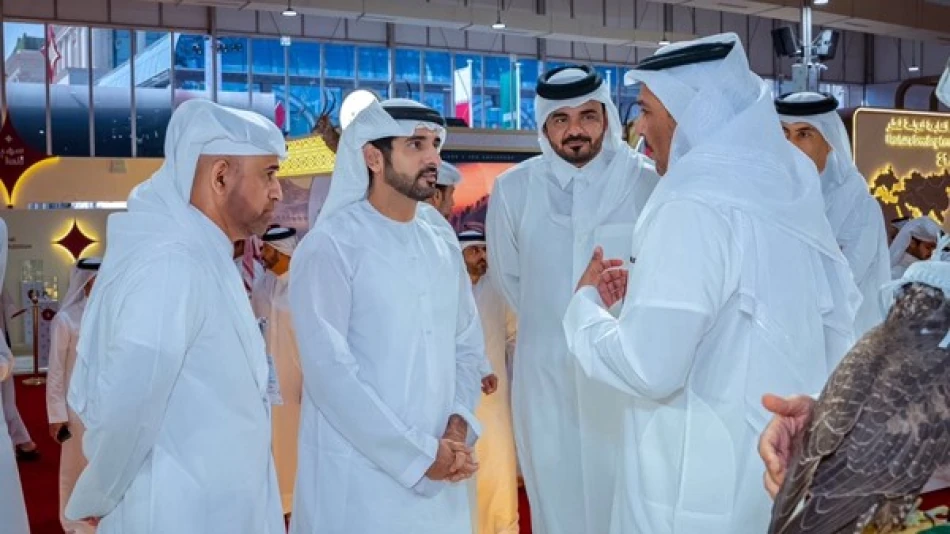
Dubai Ruler Visits Katara Falcon and Hunting Exhibition 'Suhail 2025' in Doha
Dubai Crown Prince's Qatar Visit Signals Deepening Gulf Unity Through Cultural Diplomacy
Sheikh Hamdan bin Mohammed bin Rashid Al Maktoum's visit to Qatar's prestigious falconry exhibition marks another milestone in the UAE-Qatar relationship reset, demonstrating how shared cultural heritage is becoming a powerful diplomatic tool for Gulf reconciliation and regional economic integration.
Cultural Heritage as Diplomatic Bridge
The Dubai Crown Prince's attendance at the Katara International Hunting and Falcons Exhibition "Suhail 2025" in Doha represents more than a ceremonial visit. His emphasis on "innovations and cultural activities that embody the Gulf people's pride in our authentic heritage" underscores how traditional practices like falconry are being leveraged to strengthen political and economic ties.
Sheikh Hamdan's public praise for Qatar's hospitality and his declaration that "we in the UAE stand with Qatar and its generous people, for they are part of us and we are part of them" sends a clear message about the durability of the Gulf reconciliation that began in 2021.
Economic Implications Beyond Symbolism
Trade and Investment Momentum
This diplomatic engagement comes as UAE-Qatar bilateral trade has surged since the end of the Gulf blockade. The visible unity displayed at cultural events like the falconry exhibition creates confidence for investors and businesses operating across both markets, particularly in tourism, aviation, and luxury goods sectors.
Dubai's position as a regional hub benefits significantly from normalized relations with Qatar, especially as both emirates compete and collaborate in attracting international events, from Expo 2020's legacy projects to Qatar's World Cup infrastructure investments.
Regional Stability Premium
For global investors, the consistent display of Gulf unity reduces geopolitical risk premiums across the region. When crown princes publicly celebrate shared heritage and mutual support, it signals to international markets that the 2017-2021 Qatar blockade era is definitively over.
Strategic Context: Gulf Integration 2.0
Unlike previous Gulf cooperation initiatives that focused primarily on energy coordination, the current phase emphasizes cultural diplomacy, tourism integration, and knowledge economy partnerships. The UAE and Qatar are positioning themselves as complementary rather than purely competitive markets.
This approach mirrors successful regional integration models seen in Southeast Asia, where cultural exchanges often precede deeper economic partnerships. The falconry exhibition serves as a soft power platform that reinforces political commitments made at higher diplomatic levels.
Looking Forward: Institutionalizing Cooperation
Sheikh Hamdan's visit likely presages more structured cooperation agreements in sectors where both emirates excel: aviation, financial services, and luxury tourism. The cultural diplomacy displayed at events like Suhail 2025 creates political cover for business leaders to pursue cross-border partnerships without concerns about sudden policy reversals.
For the broader Gulf region, the UAE-Qatar relationship reset demonstrates that economic pragmatism and shared cultural identity can overcome political disputes, potentially serving as a template for resolving other regional tensions.
Most Viewed News

 Layla Al Mansoori
Layla Al Mansoori






